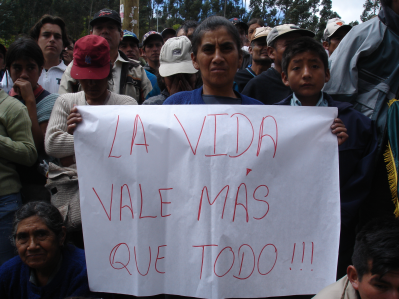 The Organization for Economic Co-operation and Development (OECD), an intergovernmental-organization, recently passed a revised version of its Guidelines for Multinational Enterprises (hereinafter Guidelines). Last updated in 2000, the Guidelines aim to address and prevent the irresponsible behavior of Multinational Enterprises (MNEs). While the reviewed Guidelines contain a number of substantial additions and modifications, there were more opportunities available to reach its full potential impact.
The Organization for Economic Co-operation and Development (OECD), an intergovernmental-organization, recently passed a revised version of its Guidelines for Multinational Enterprises (hereinafter Guidelines). Last updated in 2000, the Guidelines aim to address and prevent the irresponsible behavior of Multinational Enterprises (MNEs). While the reviewed Guidelines contain a number of substantial additions and modifications, there were more opportunities available to reach its full potential impact.
In addition to the regular thirty-four OECD member countries, Argentina, Brazil, Egypt, Latvia, Lithuania, Morocco, Peru and Romania signed on to the Guidelines. The guidelines establish voluntary principles for business conduct in areas such as labor and employment relations, access to public information, corruption, science and technology, consumer interests, taxation, competition and the environment. The Guidelines put into place a non-judicial bodies as a mechanism for promoting and monitoring compliance among the adhering countries called National Contact Points (NCP). These NCPs generally consist of representatives from each country committed to the guidelines and it receives complaints against MNEs. The history of the NCP mechanism reveals that it has been largely unsuccessful in solving specific conflicts.
OECD Watch (OW) is a network of NGOs from around the world and it promotes corporate accountability. Over the past ten years, OW has monitored the effectiveness of the Guideline’s implementation mechanisms. The most common type of alleged violations were environmental damage, employment and labor relations and human rights violations. Many of these alleged violations occurred within the supply chain of large multinational companies, and issues of supply chain responsibility were taken into consideration during the development process this May. MNEs are responsible for the activities and violations of businesses within their own supply chain, meaning large companies must now proactively investigate the activities outside their own walls.
Along with additional guidelines regarding responsibility within the supply chain, the Guidelines’ improvements focus on human rights and due diligence. The new human rights chapter aligns with the guiding principles proposed by Special Representative of the Secretary General in Human Rights and Transnational Corporations at the UN. The Policy Framework “protect, respect and remedy” was unanimously approved in the United Nations Human Rights Council back in 2008
While many of the Guidelines’ provisions adequately demand positive and sustainable behavior from MNEs, one of the criticisms is that the compliance provisions lack the strength necessary for successful implementation. The NCPs, which are responsible for handling the complaints, are not given mandate for determining whether the company has failed to meet the guidelines. Even if agreements between a company and organization were made during the grievance process, there is no mandate to monitor the execution of such agreements. The NCPs hold a large amount of discretion, making the implementation of the guidelines in each country vary with the degree to which the NCP is willing to hold companies accountable. The Guidelines are weakened by the lack of a firm complaint mechanism and require an implementation process that is strong enough to entice responsible behavior. The potential capacity for enforcing corporate responsibility depends on the integrity and commitment of the NCPs. For the Guidelines to fulfill its potential as the unique and powerful force for international corporate responsibility, it requires a legitimized process to review violations that actually redresses grievances and results in consequences for irresponsible corporate behavior.
http://www.oecd.org/dataoecd/43/29/48004323.pdf
For more information:
Sol Delamer:

